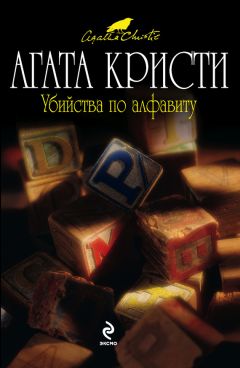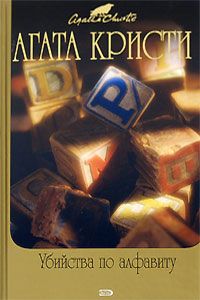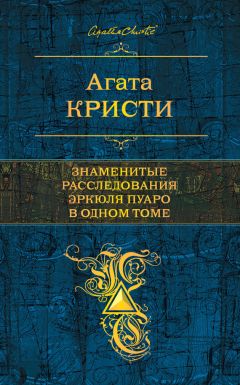Agatha Christie - Английский язык с Агатой Кристи. Убийства по алфавиту
Poirot, however (Пуаро, однако), is nothing if not matter-of-fact (это сплошная прозаичность; matter-of-fact — основанный на фактах, сухой, прозаичный; лишенный фантазии). He was absorbed in producing a certain effect upon the man opposite him (он был поглощен тем, что производил определенное впечатление на человека напротив него).
At last he said gently (наконец он мягко сказал): "Do you know who I am (вы знаете, кто я)?"
infinite [ˈɪnfɪnɪt], leisure [ˈleʒǝ], matter-of-fact [ˌmætǝr(ǝ)vˈfækt]
The atmosphere became restful — soothing — full of infinite leisure. It must have been a dramatic moment — this meeting of the two adversaries in the long drama. In Poirot's place I should have felt the dramatic thrill.
Poirot, however, is nothing if not matter-of-fact. He was absorbed in producing a certain effect upon the man opposite him.
At last he said gently: "Do you know who I am?"
The other shook his head (другой покачал головой). "No — no — I can't say (я не могу сказать) I do (что я /знаю/). Unless you are Mr. Lucas's (только если вы не мистера Лукаса) — what do they call it (как они называют это)? — junior (помощник; junior — младший; подчиненный). Or perhaps you come from Mr. Maynard (или, может быть, вы пришли от мистера Мейнарда)?"
(Maynard & Cole were the defending solicitors («Мейнард-энд-Коул» были юристами защиты).)
His tone was polite (его тон был вежливый) but not very interested (но не очень заинтересованный). He seemed absorbed in some inner abstraction (он казался поглощенным внутренними мыслями; abstraction — абстракция; погруженность мысли, задумчивость).
"I am Hercule Poirot (я — Эркюль Пуаро)…"
Poirot said the words very gently (Пуаро сказал эти слова очень мягко) … and watched for the effect (и наблюдал за эффектом).
Mr. Cust raised his head a little (мистер Каст немного поднял голову). "Oh, yes (о, да)?"
He said it as naturally (он сказал это так естественно) as Inspector Crome might have said it (как инспектор Кроум мог бы сказать это) — but without the superciliousness (но без надменности; supercilious — высокомерный, надменный, презрительный).
solicitor [sǝˈlɪsɪtǝ], abstraction [æbˈstrækʃ(ǝ)n], superciliousness [ˌsju:pǝˈsɪlɪǝsnɪs]
The other shook his head. "No — no — I can't say I do. Unless you are Mr. Lucas's — what do they call it? — junior. Or perhaps you come from Mr. Maynard?"
(Maynard & Cole were the defending solicitors.)
His tone was polite but not very interested. He seemed absorbed in some inner abstraction.
"I am Hercule Poirot …"
Poirot said the words very gently … and watched for the effect.
Mr. Cust raised his head a little. "Oh, yes?"
He said it as naturally as Inspector Crome might have said it — but without the superciliousness.
Then (затем), a minute later (минутой спустя), he repeated his remark (он повторил свое замечание). "Oh, yes?" he said (о, да?), and this time his tone was different (и на этот раз его тон был другим) — it held an awakened interest (он содержал пробудившийся интерес). He raised his head and looked at Poirot (он поднял голову и посмотрел на Пуаро).
Hercule Poirot met his gaze (Эркюль Пуаро встретил его взгляд) and nodded his own head gently once or twice (и кивнул головой один или два раза).
"Yes," he said. "I am the man (я тот человек) to whom you wrote the letters (которому вы писали ваши письма)."
At once the contact was broken (неожиданно контакт нарушился). Mr. Cust dropped his eyes (мистер Каст опустил глаза) and spoke irritably and fretfully (и заговорил раздраженно и нетерпеливо; fretful — капризный, раздражительный, нетерпеливый).
"I never wrote to you (я никогда не писал вам). Those letters weren't written by me (те письма не были написаны мною). I've said so again and again (я уже говорил так снова и снова)."
"I know," said Poirot (я знаю). "But if you did not write them (но если не вы написали их), who did (кто же написал)?"
interest [ˈɪntǝrǝst], gaze [ɡeɪz], fretfully [ˈfretfʋlɪ]
Then, a minute later, he repeated his remark. "Oh, yes?" he said, and this time his tone was different — it held an awakened interest. He raised his head and looked at Poirot.
Hercule Poirot met his gaze and nodded his own head gently once or twice.
"Yes," he said. "I am the man to whom you wrote the letters."
At once the contact was broken. Mr. Cust dropped his eyes and spoke irritably and fretfully.
"I never wrote to you. Those letters weren't written by me. I've said so again and again."
"I know," said Poirot. "But if you did not write them, who did?"
"An enemy (враг). I must have an enemy (у меня, должно быть, есть враг). They are all against me (они все против меня). The police (полиция) — everyone (каждый) — all against me (все против меня). It's a gigantic conspiracy (это гигантский заговор; conspiracy — секретность; тайный сговор)."
Poirot did not reply (Пуаро не ответил).
Mr. Cust said (мистер Каст сказал): "Everyone's hand has been against me (все были против меня: «рука каждого против меня») — always (всегда)."
"Even when you were a child (даже когда вы были ребенком)?"
Mr. Cust seemed to consider (мистер Каст, казалось, раздумывал). "No — no — not exactly then (не совсем тогда; exactly — точно). My mother was very fond of me (моя мать очень любила меня). But she was ambitious (но она была честолюбива) — terribly ambitious (ужасно честолюбива). That's why she gave me those ridiculous names (поэтому он дала мне эти нелепые имена). She had some absurd idea (у нее была некая абсурдная идея) that I'd cut a figure in the world (что я стану значительной мировой фигурой; to cut a /fine/ figure — производить /хорошее/ впечатление; to cut — вырезать; кроить). She was always urging me to assert myself (она всегда торопила меня утвердиться) — talking about will power (говорила о силе воли) … saying anyone could be master of his fate (говорила, что каждый может быть хозяином своей судьбы) … she said I could do anything (она говорила, что я смогу сделать что угодно)!"
gigantic [ʤaɪˈɡæntɪk], conspiracy [kǝnˈspaɪǝrǝsɪ], ambitious [æmˈbɪʃǝs]
"An enemy. I must have an enemy. They are all against me. The police — everyone — all against me. It's a gigantic conspiracy."
Poirot did not reply.
Mr. Cust said: "Everyone's hand has been against me — always."
"Even when you were a child?"
Mr. Cust seemed to consider. "No — no — not exactly then. My mother was very fond of me. But she was ambitious — terribly ambitious. That's why she gave me those ridiculous names. She had some absurd idea that I'd cut a figure in the world. She was always urging me to assert myself — talking about will power … saying anyone could be master of his fate … she said I could do anything!"
He was silent for a minute (он молчал: «был молчалив» с минуту).
"She was quite wrong, of course (она была совершенно неправа, конечно). I realized that myself quite soon (я достаточно скоро это осознал сам). I wasn't the sort of person to get on in life (я был не тем человеком, чтобы преуспевать в жизни). I was always doing foolish things (я всегда делал глупости: «глупые вещи») — making myself look ridiculous (заставляя себя выглядеть нелепо). And I was timid (и я был застенчив) — afraid of people (боялся людей). I had a bad time at school (мне плохо приходилось в школе) — the boys found out my Christian names (мальчишки узнали мои имена) — they used to tease me about them (они, бывало, дразнили меня из-за них). I did very badly at school (я очень плохо успевал в школе) — in games (в играх) and work (и работе) and everything (и во всем)."




